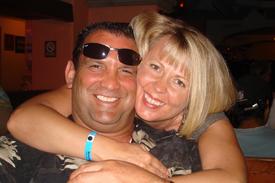We are pleased to announce that on March 4, 2025, an updated Rich Text Editor will be introduced in the MyFitnessPal Community. To learn more about the upcoming changes, please click here. We look forward to sharing this new feature with you!
Please help....i'm confused!!!

tjbeer
Posts: 90 Member
:huh:
So all night I have been scaning the message boards and have now got myself confused.
The topic is whether or not I eat my exercise calories??? Oh no.....not again I hear you cry :sad: but there is no clear answer...well that I can find any way. So please help me? I am suppose to eat 1200 calories a day, then on top of this I am burning about 400-500 4 days a week in the gym. I want to loose weight slowly but it is so slow that it has almost stopped. Any ideas or advice greatly apreciated.
:flowerforyou:
Tx
So all night I have been scaning the message boards and have now got myself confused.
The topic is whether or not I eat my exercise calories??? Oh no.....not again I hear you cry :sad: but there is no clear answer...well that I can find any way. So please help me? I am suppose to eat 1200 calories a day, then on top of this I am burning about 400-500 4 days a week in the gym. I want to loose weight slowly but it is so slow that it has almost stopped. Any ideas or advice greatly apreciated.
:flowerforyou:
Tx
0
Replies
-
In my opinion you have to figure that out for your own body by playing with it. One week eat all your calories (exercise included) the next don't, the next eat half..
I normally eat about 1/2.. the main thing is to "refuel" after activity.0 -
A lot of people on here are going to tell you to eat your exercise calories.
For me - I'm just like you. When I ate my exercise calories I didn't lose weight and sometimes even gained!
So I calculated my RMR, added the average amount that I burned at the gym, calculated the deficit I would need to burn 1.5lbs per week and then eat to meet my deficit.0 -
I hear you... I'm also uncertain about this. I've been very good at sticking to the 1200 most days (little splurge at the weekend once I've had a savage gym workout!) and would workout 4 or 5 days as well, but I'm not seeing a whole lot in terms of loss on the scales. I definitely feel better and think I'm looking a little bit sleeker, but when I get up on the scales and there's no change, well, it's disheartening and its all I can do not to crawl into a bag of kettle chips saying, "why bother".
I keep telling myself its just my metabolism resetting and getting used to regular meals and good quality food (as opposed to skipping breakfast and lunch, having an okay dinner and going mad at the weekend). I've recently started High Intensity Interval Training and I can already feel the improvement. The gym trainer says this is what I should be doing to boost the metabolism and burn more fat and I think he's right. I'll see what happens when I next weigh myself in another couple of weeks.
When I have a good workout, I tend to have a light protein snack afterwards, even if it means going above the 1200 a day. I generally wouldn't eat them all though. A lot of people are saying you need to find the balance that's right for you. You do want to ensure that you are eating enough and regularly, especially if there is large calorie deficit. You don't want your body to think this is a starvation scenario as it will only end up hoarding everything!
Continued good luck!
T. x0 -
You are not likely going to get a clear answer because there really is no clear answer to this. It is completely a preference thing.
MFP is set up so that you SHOULD be eating your exercise calories and should still lose the amount of weight it says. However my body doesn't work like that. If I burn 1000 calories exercising and then go out and eat those 1000 calories I would gain a lot of weight.
The main problem is that exercise calories are estimates, food calories are estimates, and most people over-estimate exercise calories and under estimate food calories and then end up not losing any weight. If you aren't losing when eating exercise calories, cut back a little. I usually eat about 1/3 of my exercise calories and have found that to be the right balance for me to lose my 2lbs a week, but everyone is different. Try different things and see how your body responds. Eventually you will find that zone that works for your body and lifestyle.0 -
I don't know what the "right" answer is, but I can tell you what I do. I am supposed to eat 1500 calories a day. I only use my exercise calories if I feel I need them. In other words, I'm not going to eat just to eat... just because I have calories left. That just doesn't make sense to me. Most days I don't use them, but if I'm feeling extra hungry after having worked out, then I use them. Maybe not ALL of them, but they're there if I want them. Weight loss is tricky business, isn't it? It's different for everyone at different times. My basic sense is that if I feel like I'm constantly denying myself, I'm not going to stick to this. So I say if you're feeling hungry after working out... eat those calories. But that's just me....
 0
0 -
Just do what works for you.....try it both ways....everyone is different and what might work for one won't work for another, so if you can eat your workout calories and still lose, then eat them, if you find your not losing eating them then don't eat them lol0
-
I just put this on another post - but it's great information & has good guidelines to go by...
This information from www.bmi-calculator.net
Harris Benedict Formula
To determine your total daily calorie needs, multiply your BMR by the appropriate activity factor, as follows:
If you are sedentary (little or no exercise) : Calorie-Calculation = BMR x 1.2
If you are lightly active (light exercise/sports 1-3 days/week) : Calorie-Calculation = BMR x 1.375
If you are moderatetely active (moderate exercise/sports 3-5 days/week) : Calorie-Calculation = BMR x 1.55
If you are very active (hard exercise/sports 6-7 days a week) : Calorie-Calculation = BMR x 1.725
If you are extra active (very hard exercise/sports & physical job or 2x training) : Calorie-Calculation = BMR x 1.9
Calorie Needs to lose weight
There are approximately 3500 calories in a pound of stored body fat. So, if you create a 3500-calorie deficit through diet, exercise or a combination of both, you will lose one pound of body weight. (On average 75% of this is fat, 25% lean tissue) If you create a 7000 calorie deficit you will lose two pounds and so on. The calorie deficit can be achieved either by calorie-restriction alone, or by a combination of fewer calories in (diet) and more calories out (exercise). This combination of diet and exercise is best for lasting weight loss. Indeed, sustained weight loss is difficult or impossible without increased regular exercise.
If you want to lose fat, a useful guideline for lowering your calorie intake is to reduce your calories by at least 500, but not more than 1000 below your maintenance level. For people with only a small amount of weight to lose, 1000 calories will be too much of a deficit. As a guide to minimum calorie intake, the American College of Sports Medicine (ACSM) recommends that calorie levels never drop below 1200 calories per day for women or 1800 calories per day for men. Even these calorie levels are quite low.
An alternative way of calculating a safe minimum calorie-intake level is by reference to your body weight or current body weight. Reducing calories by 15-20% below your daily calorie maintenance needs is a useful start. You may increase this depending on your weight loss goals.0 -
You should not, as a woman, go below 1200 net calories per day. That means you need to eat all of the calories MFP tells you, after you exercise.0
-
Definitely wanna take time to read the newbie posts again and again and again. MFP puts you at a calorie deficit when you sign up that's why it gives you the cals it does. Those daily cals are already a deficit, if you then on top of that minus out your workout cals your body is going to be pretty dang hungry. If you've lots of weight to lose, 100 or so you can get by for a bit. If you're looking to lose far less, when you eat 1200 and then workout and burn 700 cals, you're left with your body running on 500 cals that day!! Doesn't sound like enough for my body to even function at.:huh:
So all night I have been scaning the message boards and have now got myself confused.
The topic is whether or not I eat my exercise calories??? Oh no.....not again I hear you cry :sad: but there is no clear answer...well that I can find any way. So please help me? I am suppose to eat 1200 calories a day, then on top of this I am burning about 400-500 4 days a week in the gym. I want to loose weight slowly but it is so slow that it has almost stopped. Any ideas or advice greatly apreciated.
:flowerforyou:
Tx
Definitely do you own research on this one, you can chose to not eat them all back as some do but before deciding on taking everyone's advice and not eating ANY back, check into it yourself. This isn't like other sites as I shared MFP already fits a calorie deficit into your day for you. If you're set up to lose 1 lb a week, MFP has figured the deficit at 500 a day, if you're looking to lose 2 lbs a week, it's set it at 1000 deficit.
You'll see all sorts of responses on this topic, so many you head will spin around a couple times. The best thing is to do the research yourself by learning what a calorie deficit really means and read about how MFP works on your own. There are lots of great articles to read.
The best to you:flowerforyou: 0
0 -
:drinker: :drinker: :flowerforyou:You should not, as a woman, go below 1200 net calories per day. That means you need to eat all of the calories MFP tells you, after you exercise. 0
0 -
I go where the science is and not base anything off of opinion. There is so much information on the internet about healthy living, and getting your metabolism going. Report after report, says to eat your workout calories so you metabolism will climb. Healthy muscle burns more energy, and requires more to sustain it. Everyone who starves themselves skinny ends up not losing the weight after a while because their metabolism grinds to a halt, or they gain it all back the second they get off the diet they were on. I look at who has consistent results, and long lasting results, and how they got them. Exercise, a healthy diet, and slow weight loss wins out every time. Every one of those diets say to fuel the workouts, so you get more out of each workout, and you have energy to fuel your body for the day. The change comes when your metabolism cranks up. So, I disagree with anyone who says to "just do what feels right". Every one's body is different, that is true. However, every one who follows a healthy path to weight loss, and sticks with it ends up with the same results. some just take longer than others to get there. You didn't get the fat overnight, you are not going to lose it over night either.0
-
For wieight loss I wouldn't eat my exercise calories, as long as you're making the right food choices throughout the day, remember little and often, and eating within 30 mins after any form of exercise you will be re-fueling without needing to eat the extra calories. If you do eat your exercise calories then you will be just maintaining your weight, not losing it. So when you reach your goal weight thats when you should start eating your exercise calories so you don't lose any more0
-
I just put this on another post - but it's great information & has good guidelines to go by...
This information from www.bmi-calculator.net
Harris Benedict Formula
To determine your total daily calorie needs, multiply your BMR by the appropriate activity factor, as follows:
If you are sedentary (little or no exercise) : Calorie-Calculation = BMR x 1.2
If you are lightly active (light exercise/sports 1-3 days/week) : Calorie-Calculation = BMR x 1.375
If you are moderatetely active (moderate exercise/sports 3-5 days/week) : Calorie-Calculation = BMR x 1.55
If you are very active (hard exercise/sports 6-7 days a week) : Calorie-Calculation = BMR x 1.725
If you are extra active (very hard exercise/sports & physical job or 2x training) : Calorie-Calculation = BMR x 1.9
Calorie Needs to lose weight
There are approximately 3500 calories in a pound of stored body fat. So, if you create a 3500-calorie deficit through diet, exercise or a combination of both, you will lose one pound of body weight. (On average 75% of this is fat, 25% lean tissue) If you create a 7000 calorie deficit you will lose two pounds and so on. The calorie deficit can be achieved either by calorie-restriction alone, or by a combination of fewer calories in (diet) and more calories out (exercise). This combination of diet and exercise is best for lasting weight loss. Indeed, sustained weight loss is difficult or impossible without increased regular exercise.
If you want to lose fat, a useful guideline for lowering your calorie intake is to reduce your calories by at least 500, but not more than 1000 below your maintenance level. For people with only a small amount of weight to lose, 1000 calories will be too much of a deficit. As a guide to minimum calorie intake, the American College of Sports Medicine (ACSM) recommends that calorie levels never drop below 1200 calories per day for women or 1800 calories per day for men. Even these calorie levels are quite low.
An alternative way of calculating a safe minimum calorie-intake level is by reference to your body weight or current body weight. Reducing calories by 15-20% below your daily calorie maintenance needs is a useful start. You may increase this depending on your weight loss goals.
Question:
If you put yourself at a "If you are moderatetely active (moderate exercise/sports 3-5 days/week) : Calorie-Calculation = BMR x 1.55 " level and workout 3-5 times, should you add and eat your exercise cals for those 3-5 workouts?
To me, it would appear that you've already done this, so you would not. If you workout 7 times, then you'd log 2 or 3 "extra" workouts.
Being sednetary is obvious, eat back your exercise cals whenever you workout, because your baseline is "no exercise".
At the other end of the spectrum, if you are this person "If you are extra active (very hard exercise/sports & physical job or 2x training) : Calorie-Calculation = BMR x 1.9 " then you shouldn't add or eat anything. In fact, you should be subtracting exercise cals everytime you do nothing.0 -
If you do eat your exercise calories then you will be just maintaining your weight, not losing it. So when you reach your goal weight thats when you should start eating your exercise calories so you don't lose any more
Not true. You are already eating 500 calories less than is required to maintain your current weight. So as long as you are eating less, you will continue to lose weight, even when eating all of your exercise calories. If you are a woman and your net is 1200 or more, you can afford to not eat any exercise calories up and beyond what it takes to get you to a net of 1200. If you are a man, it is 1500.
irchrismm's post is right on.0 -
I say eat half of your exercise calories and be done with it.0
This discussion has been closed.
Categories
- All Categories
- 1.4M Health, Wellness and Goals
- 394.3K Introduce Yourself
- 43.9K Getting Started
- 260.4K Health and Weight Loss
- 176.1K Food and Nutrition
- 47.5K Recipes
- 232.7K Fitness and Exercise
- 440 Sleep, Mindfulness and Overall Wellness
- 6.5K Goal: Maintaining Weight
- 8.6K Goal: Gaining Weight and Body Building
- 153.1K Motivation and Support
- 8.1K Challenges
- 1.3K Debate Club
- 96.4K Chit-Chat
- 2.5K Fun and Games
- 4K MyFitnessPal Information
- 16 News and Announcements
- 1.2K Feature Suggestions and Ideas
- 2.7K MyFitnessPal Tech Support Questions










